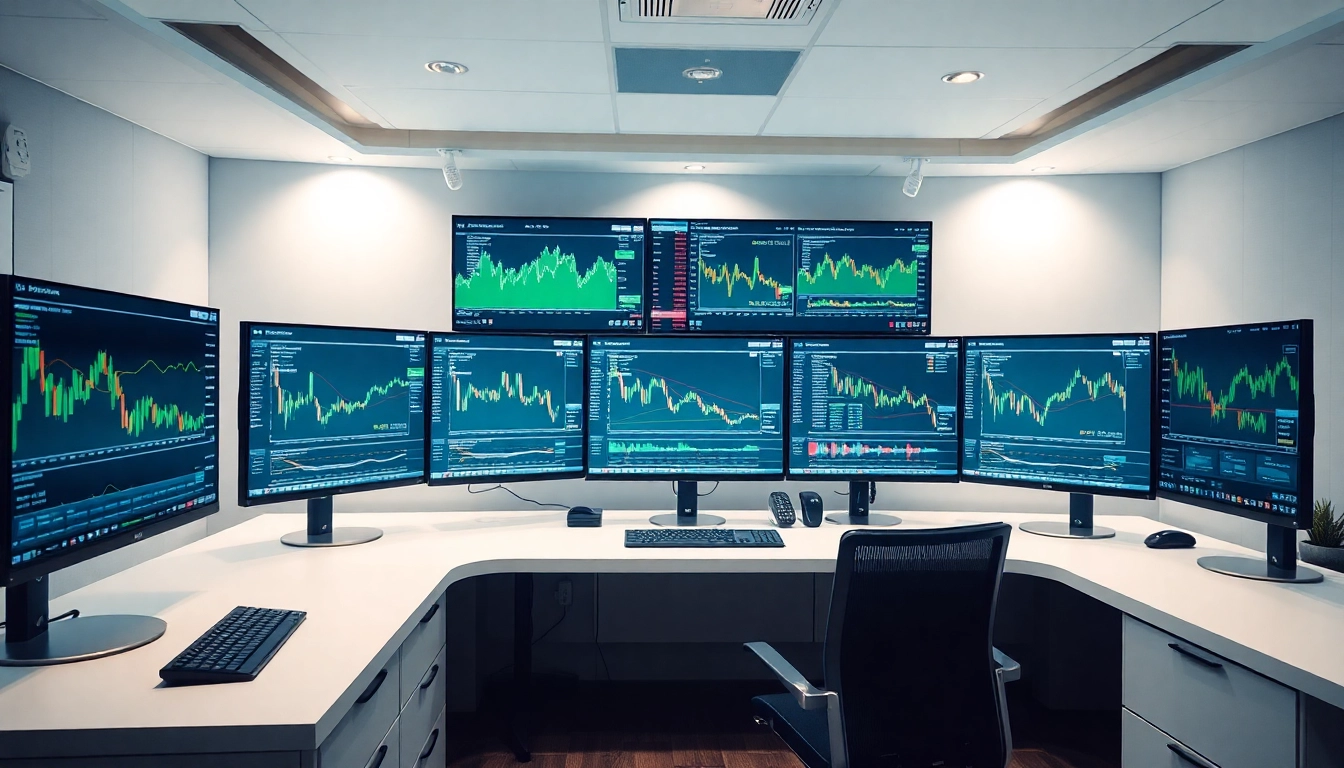Understanding Container Rental: Types and Uses in the UK
Container rental has become an essential solution for a diverse range of industries and purposes across the United Kingdom. From storage for construction sites to mobile offices, retail solutions, and logistical needs, renting containers offers flexibility, security, and cost-efficiency. As demand continues to grow, businesses and individuals are seeking reliable providers that offer quality products tailored to their specific requirements. For those exploring options, integrating a thorough understanding of container types, applications, and rental considerations is crucial to making informed decisions. Whether you’re considering a short-term solution or a long-term investment, this comprehensive guide will navigate you through the intricacies of container rental in the UK, ensuring you maximize value and operational efficiency.
To start your journey, it’s important to grasp the fundamental differences between the various shipping and storage containers, and how these can align with your project needs. For more details on reliable options, visit Container rental, a trusted provider known for offering diverse container solutions across the UK.
Overview of Shipping and Storage Containers
Shipping and storage containers are standardized units designed to facilitate the safe and efficient transportation and storage of goods. They come in various sizes and configurations, primarily categorized into standard shipping containers, storage containers, and specialized container types. The most common dimensions in the UK market include 10ft, 20ft, and 40ft containers, with the 20ft unit being the most versatile for various applications.
Types of Shipping and Storage Containers
- Standard Dry Storage Containers: These are designed for general storage and transportation of dry goods. Made of robust steel, they protect contents from weather, theft, and damage.
- High Cube Containers: Similar to standard containers but with increased height, providing more volume for bulky or lightweight items.
- Refrigerated Containers (Reefers): Used to transport perishable goods, these units are equipped with temperature control systems.
- Open-Top Containers: Designed for oversized or awkward cargo that cannot be easily loaded through standard doors.
- Flat-Rack Containers: Ideal for heavy or oversized equipment, offering a flat surface for easy loading.
- Specialized Site Containers: Including cabin units, office containers, or converted units for unique needs.
Each type serves distinct purposes, which will be elaborated upon later to aid in your selection process.
Common Applications for Container Rental
Container rental solutions have broad applicability across various sectors, addressing both operational and logistical challenges effectively. Here’s a detailed look at the key applications:
Construction and Infrastructure Projects
Construction sites require secure, weatherproof storage for tools, materials, and equipment. Mobile office containers are also widely used for site management, meeting rooms, and staff accommodation. The ability to quickly deploy and remove containers makes them ideal for project-based works with fluctuating timelines.
Industrial and Warehouse Storage
Industries often face space constraints or require supplementary storage facilities. Renting containers provides a flexible solution for storing inventory, raw materials, or machinery, especially in urban areas where permanent structures are impractical or costly.
Event Management and Temporary Facilities
Event organizers leverage containers for temporary offices, ticketing booths, equipment storage, or sanitary facilities. Their mobility and modular nature enable rapid setup and dismantling, aligning with event schedules.
Retail and Commercial Use
Pop-up shops, mobile showrooms, and storage for seasonal stock are increasingly housed within rented containers. This approach reduces overhead costs and offers fast deployment in strategic locations.
Logistics and Transportation
Transport companies utilize rental containers for freight forwarding, cross-country moving, or bulk deliveries, benefitting from standardized dimensions and units that facilitate seamless handling across different modes of transportation.
Agriculture and Rural Storage
Farmers and rural enterprises employ containers for storing equipment, feed, or harvested crops. Their durability ensures preservation against harsh weather conditions prevalent in some regions.
Key Differences Between Container Types
Choosing the appropriate container hinges on understanding the fundamental distinctions, which impact functionality, security, and costs. Here are the main factors to consider:
Material Composition
Most containers are constructed from high-quality steel for durability and security. Specialized units, such as refrigerated or insulated containers, incorporate additional materials for thermal regulation.
Size and Capacity
Size is a critical factor. Standard sizes include 10ft, 20ft, and 40ft units, with their respective volumes and weight capacities. High cube versions offer additional height for volumetric efficiency, while open-top and flat-rack containers are tailored for specific cargo types.
Security Features
Locking mechanisms, padlocks, security seals, and anti-theft features vary across container types. For sensitive or valuable goods, selecting containers with enhanced security is imperative.
Temperature Control
Refrigerated containers enable temperature-sensitive storage and transport, vital for pharmaceuticals, perishables, or delicate electronics.
Customization and Conversion Options
Some providers offer custom modifications, including insulation, shelving, lighting, or even conversion into office or living units, providing tailored solutions for specialized needs.
Choosing the Right Container Rental Solution
Factors to Consider: Size, Security, Accessibility
Defining your project scope is fundamental. Assess the volume of goods, required security levels, and access points. For instance, a construction site needing frequent access might benefit from larger, easily accessible containers with reinforced locks.
Assessing Rental Duration and Flexibility
Determine whether your needs are short-term (weeks to months) or long-term (yearly or more). Many providers offer flexible rental terms allowing upgrades, downsizing, or extensions, thus avoiding unnecessary costs or disruptions.
Cost Analysis and Budgeting Tips
Pricing varies based on size, type, duration, and additional services. Always request detailed quotes, considering delivery, installation, and maintenance costs. For example, short-term rentals might be more economical if occasional, but long-term agreements often unlock better rates. Comparing providers on these factors can lead to savings of up to 20-30%.
How to Secure Reliable Container Rental Providers
Evaluating Service Quality and Delivery Options
Reliable providers offer timely delivery, quality inspection, and comprehensive support. It’s crucial to confirm delivery coverage across your locations and seek options for on-site installation or removal. Check their fleet size and maintenance protocols to ensure container integrity upon arrival.
Reading Customer Reviews and Case Studies
Customer testimonials and case studies reveal a provider’s track record. Look for feedback on punctuality, container condition, and responsiveness. For example, a case study highlighting a construction firm’s efficient project turnaround after partnering with a provider underscores service reliability.
Understanding Contract Terms and Additional Services
Clarify rental agreements, cancellation policies, and liability clauses. Additional services such as insurance, security upgrades, or custom modifications can add value. Negotiating these aspects often leads to tailored solutions with minimized risks.
Implementing Container Rental for Your Projects
Step-by-Step Rental Process
- Identify your needs: Determine the container size, type, and rental duration.
- Research providers: Compare options based on quality, price, and reviews.
- Request quotes and evaluate offers: Consider total costs, delivery, and support services.
- Finalize contract and schedule delivery: Confirm site access, delivery times, and setup requirements.
- Prepare the site: Clear space, ensure accessibility, and plan for secure anchoring if necessary.
- Receive and inspect the container: Ensure the condition matches expectations and document existing damages.
Preparing Site and Delivery Logistics
Site preparation entails leveling ground, creating access routes, and ensuring safety. Coordination with the provider about delivery equipment, such as cranes or forklifts, can streamline placement. Additionally, planning for security measures, like fencing or surveillance, is prudent to protect stored items.
Maintenance, Security, and Post-Rental Support
Routine inspections can prevent issues such as rust or structural damage. Security features like padlocks or alarms enhance safety. Post-rental, coordinate with the provider for pickup or extended service, and review any support or damage policies.
Maximizing Value from Your Container Rental Investment
Innovative Uses and Customizations
Beyond basic storage, containers can be customized into offices, workshops, or even pop-up retail units. Interior fittings like electrical wiring, lighting, and shelving optimize usability. Such conversions increase operational efficiency and adapt to evolving business needs.
Tracking Efficiency and Performance Metrics
Implementing inventory management systems or security monitoring within containers can enhance tracking and accountability. Regular performance audits help identify maintenance needs and optimize rental costs by ensuring containers are used effectively.
Future Trends in Container Rental Services
The industry is moving towards smart containers equipped with IoT sensors for real-time condition monitoring. Modular and eco-friendly designs are gaining popularity, aligning with sustainability goals. Additionally, increased customization options and flexible leasing models are making container rental more adaptable to modern business dynamics.





